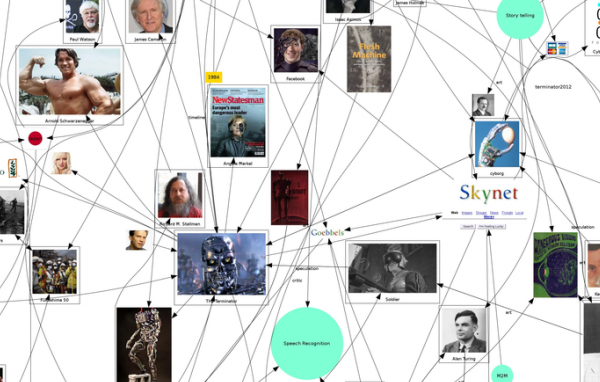est déjà parmi nous @jz @wikileaks @google @darpa @meganeellison


est déjà parmi nous @jz @wikileaks @google @darpa @meganeellison
"Le choix d’un pseudonyme peut permettre d'échapper à la police ou la censure"
According to a recent YouGov poll, 13 percent of IT decision makers believe technology could destroy the Earth, with the leading causes of our demise including the prevention of evolution (74 percent), military and warfare (66 percent), artificial intelligence (44 percent), and environmental issues (38 percent).
As I've written here before, science fiction is terrible at predicting the future, but it's great at predicting the present. SF writers imagine all the futures they can, and these futures are processed by a huge, dynamic system consisting of editors, booksellers, and readers. The futures that attain popular and commercial success tell us what fears and aspirations for technology and society are bubbling in our collective imaginations.
There were a lot of SF movies produced in the mid-eighties, but few retain the currency of the Terminator and its humanity-annihilating AI, Skynet. Everyone seems to thrum when that chord is plucked – even the NSA named one of its illegal mass surveillance programs SKYNET.
The secret abortion politics of the ‘Terminator’ franchise
RT @MarinGontier: Très très bon @jerezim sur @franceinter "asservir les êtres humains" t800=tel…